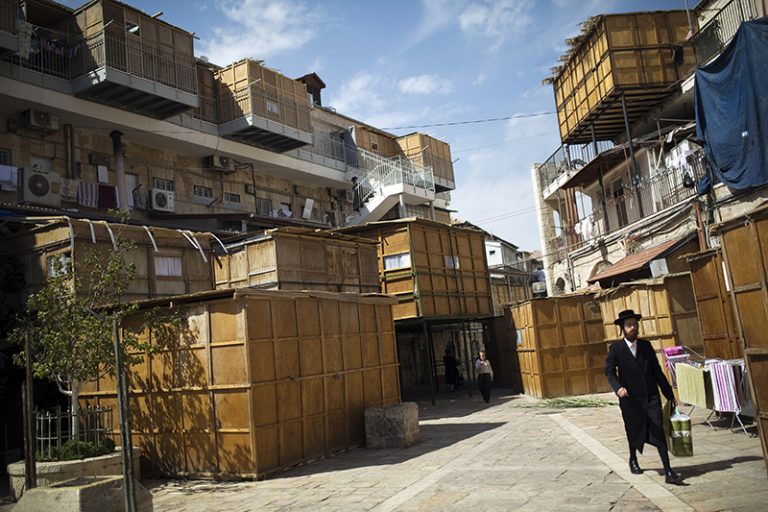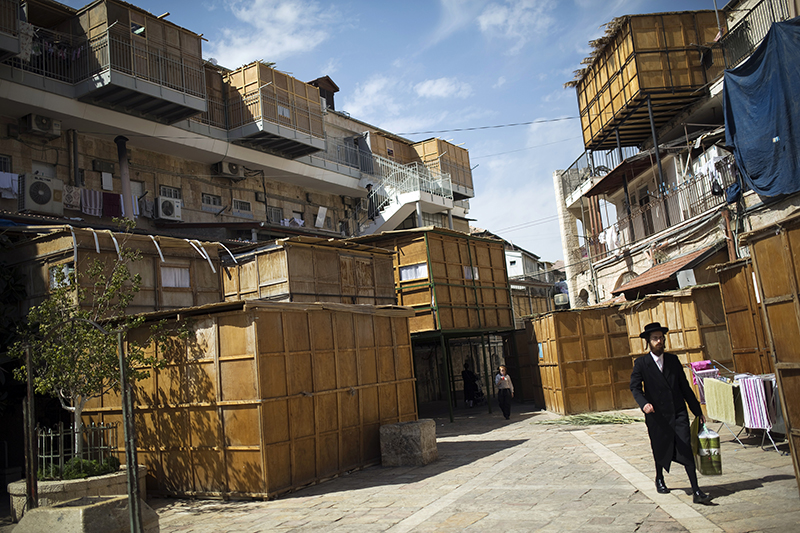 The holiday of Sukkot starts on the 15th day of Tishrei. The holiday of Sukkot is characterized by the unique commandment of dwelling in Sukkot – temporary, hut-like dwellings, as the Torah says in Vayikra (23: 42-43 ) “In booths you are to dwell for seven days …so that your generations will know that I caused the children of Israel to dwell in booths when I took them from the land of Egypt….”
The holiday of Sukkot starts on the 15th day of Tishrei. The holiday of Sukkot is characterized by the unique commandment of dwelling in Sukkot – temporary, hut-like dwellings, as the Torah says in Vayikra (23: 42-43 ) “In booths you are to dwell for seven days …so that your generations will know that I caused the children of Israel to dwell in booths when I took them from the land of Egypt….”
The Sages in the tractate of Sukkah (11b) disagree as to what the “booths” that the Israelites dwelt in refer to. Rabbi Eliezer says that these booths are a reference to the miraculous “Ananai HaKavod,” the “Clouds of Glory,” with which G-d surrounded the Israelites throughout their forty year sojourn in the desert after having left Egypt. These clouds protected the Israelites from the elements and the hot desert floor, kept the Jews’ clothing clean, and guided the nation of Israel through the desert. Rabbi Akiva maintains, however, that these “booths” refer to the actual booths or huts that the Israelites built while in the desert to serve as their dwellings.
The Aruch HaShulchan (Orach Chaim 625 ) raises the following question: Whereas Rabbi Eliezer’s booths were manifestations of a great miracle that G-d performed for the Jews in the desert, and certainly merits a commandment commemorating the infinite kindness and protection of G-d, Rabbi Akiva’s interpretation is most puzzling in light of the commandment to dwell in the Sukkah. What is the significance of the huts that the Jews lived in while in the desert?
The Aruch HaShulchan answers his own question. According to Rabbi Akiva, the Sukkah commemorates the greatness of the Jewish people. Their faith in G-d was so complete and so total that they traveled into the uninhabitable desert wasteland at G-d’s command. In this wasteland, the Jews did not even have permanent dwellings, but merely booths, trusting in G-d that He would care for their every need in the wilderness, which of course, He did.
Based on what we have seen, both Rabbi Eliezer’s and Rabbi Akiva’s interpretation of the Israelite’s “booths” in the desert relate our observance of the commandment of Sukkot to G-d’s miraculous protection of the Jews during their forty year sojourn through the desert on route to the land of Israel. This protection was not furnished only to the Jewish people while in the desert, but in His infinite kindness, G-d has extended that protection to our people throughout the ages. This special protection, symbolized by the Sukkah, has ensured the continued existence and survival of the Jewish people until this very day.

